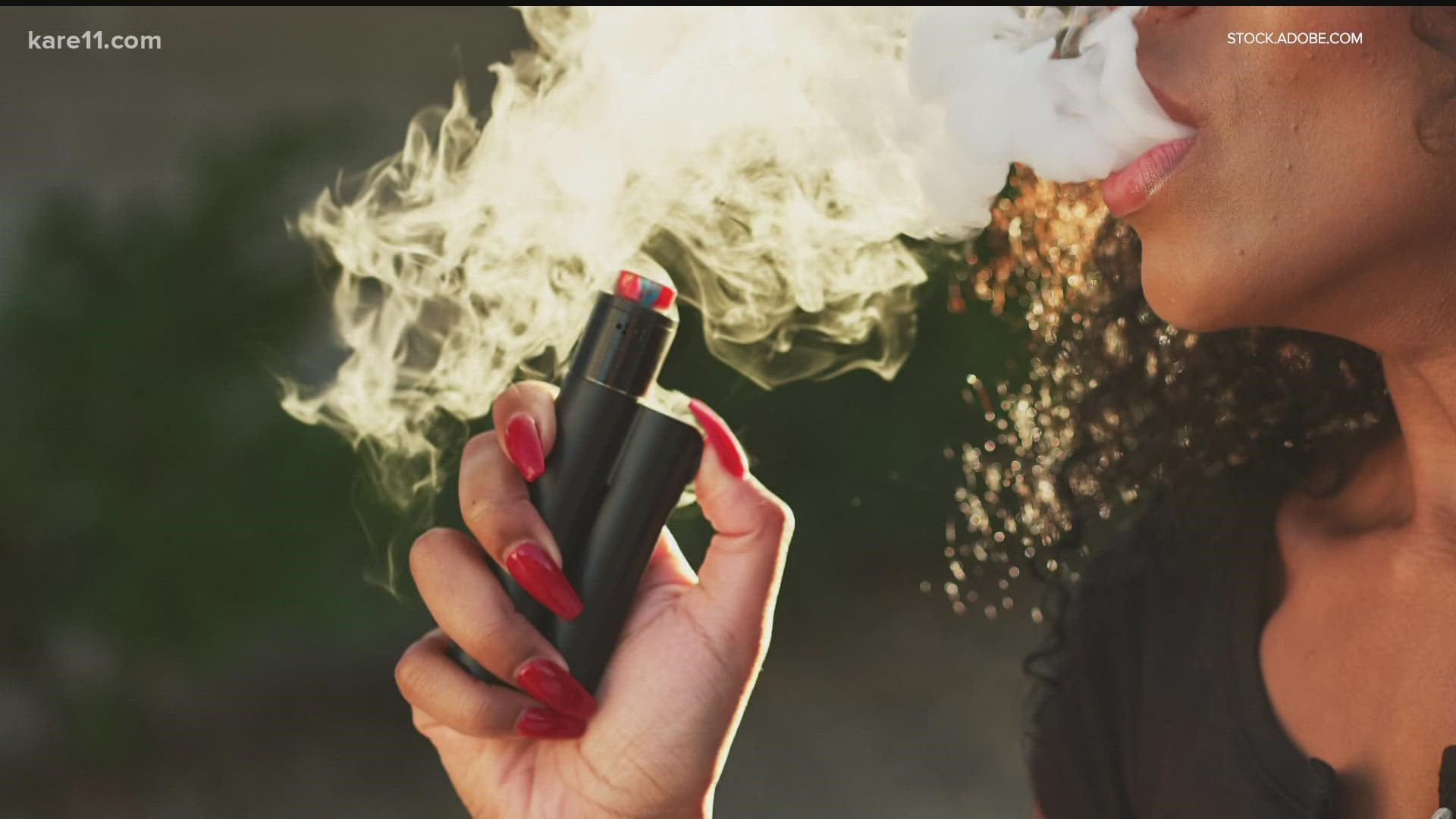ST PAUL, Minn. — State advocates are pushing to end the sale of flavored tobacco products in Minnesota, amid concerns that teen use creates pathways for addiction. Starting Monday, Feb. 28, a coalition called Minnesotans for a Smoke-Free Generation will kick off a virtual Week of Action, where both youth and adults will have the opportunity to learn the various ways to contact their lawmakers to create change.
"While our state has invested in tobacco prevention and treatment, we’ve raised our tobacco sales age to 21, we have strong clean indoor air laws, we still have work to do and it requires bold action," Emily Myatt, government relations director for the American Cancer Society of Minnesota said. "We’re calling on the legislature to end the sale of all flavored tobacco products and remove barriers to tobacco cessation treatment for Minnesotans on Medicaid and Minnesota Care."
Wednesday, Myatt testified in a committee hearing for House File 3153, which would expand tobacco cessation programs and initiatives, such as telephone counseling, in our state. The bill passed out of committee 9-2, advancing to the House Health Finance and Policy Committee for a hearing.
Myatt says it's a step in the right direction to combat an aggressive industry.
"The tobacco industry knows exactly who they’re targeting," she said. "They’re targeting kids, communities of color, the LGBTQ+ population, and we’re up against that, so it’s so important that our state does everything that it can to help kids keep tobacco out of their hands."
This comes a month after Truth Initiative released a report about imagery of tobacco products in shows that are popular among young people ages 15-24. Sixty-four percent of the top binge-watched shows in 2020 featured tobacco products, according to the report.
Pat McKone, the senior director for the American Lung Association in Minnesota, said she has experienced that firsthand.
"Sunday night on a very popular show I was watching, there was a popular character vaping," McKone said.
She added e-cigarettes are even more concerning, due to the lack of regulation.
"[Teens] more tend to binge-watch and go with a series, and because [e-cigarettes are] an unregulated product as far as advertising on TV or product placement in these popular shows, that has increased over the last couple years."
And social media isn't helping. The 2017 Minnesota Youth Tobacco Survey found 88% of Minnesota high schoolers saw ads for e-cigarettes over the course of a month.
"It puts young people at a much higher risk to become a user of combustible tobacco," McKone said. "It puts them at risk for further addictions, it opens pathways in the brain – one of the last parts of our bodies to fully develop."
McKone urges parents to have conversations with their children about these products by leading with listening.
"No one likes to be lectured," she said. "Ask them 'tell me what's going on? What do you know about these devices?' and listen."
The American Lung Association also offers these resources to help people quit.

